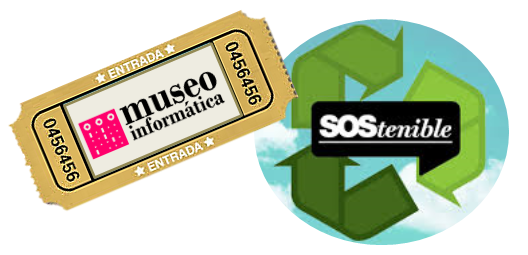Important: In the Retrocomputing workshop, reservations are only possible Wednesday mornings from 11:30 a.m.
Page to sign up for activities Link
For more information, contact: activitats.museu @ etsinf.upv.es

Important: In the Retrocomputing workshop, reservations are only possible Wednesday mornings from 11:30 a.m.
Page to sign up for activities Link
For more information, contact: activitats.museu @ etsinf.upv.es